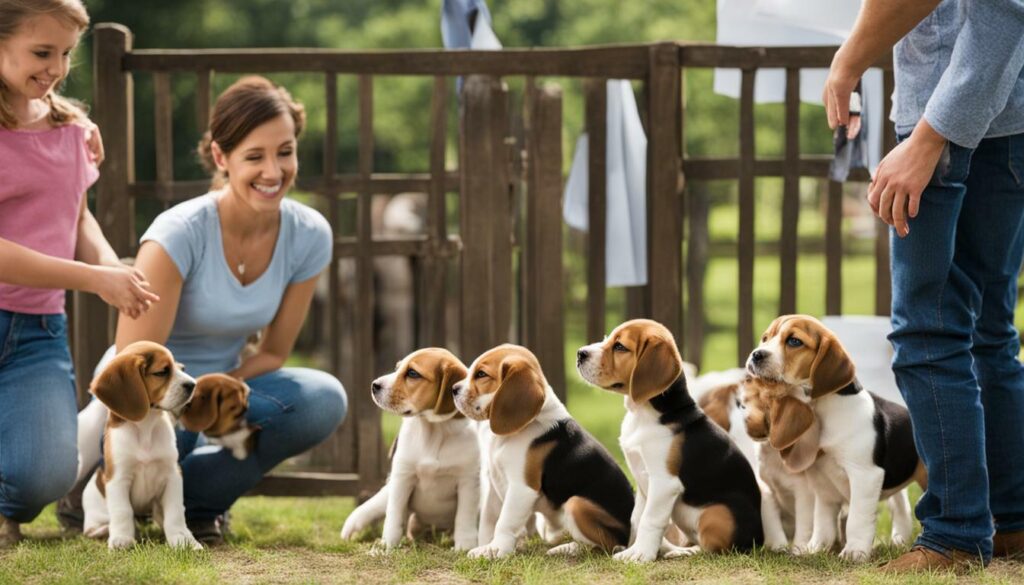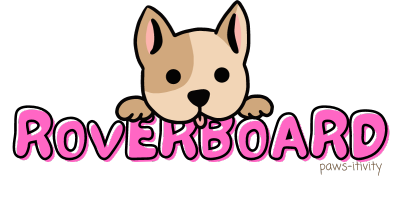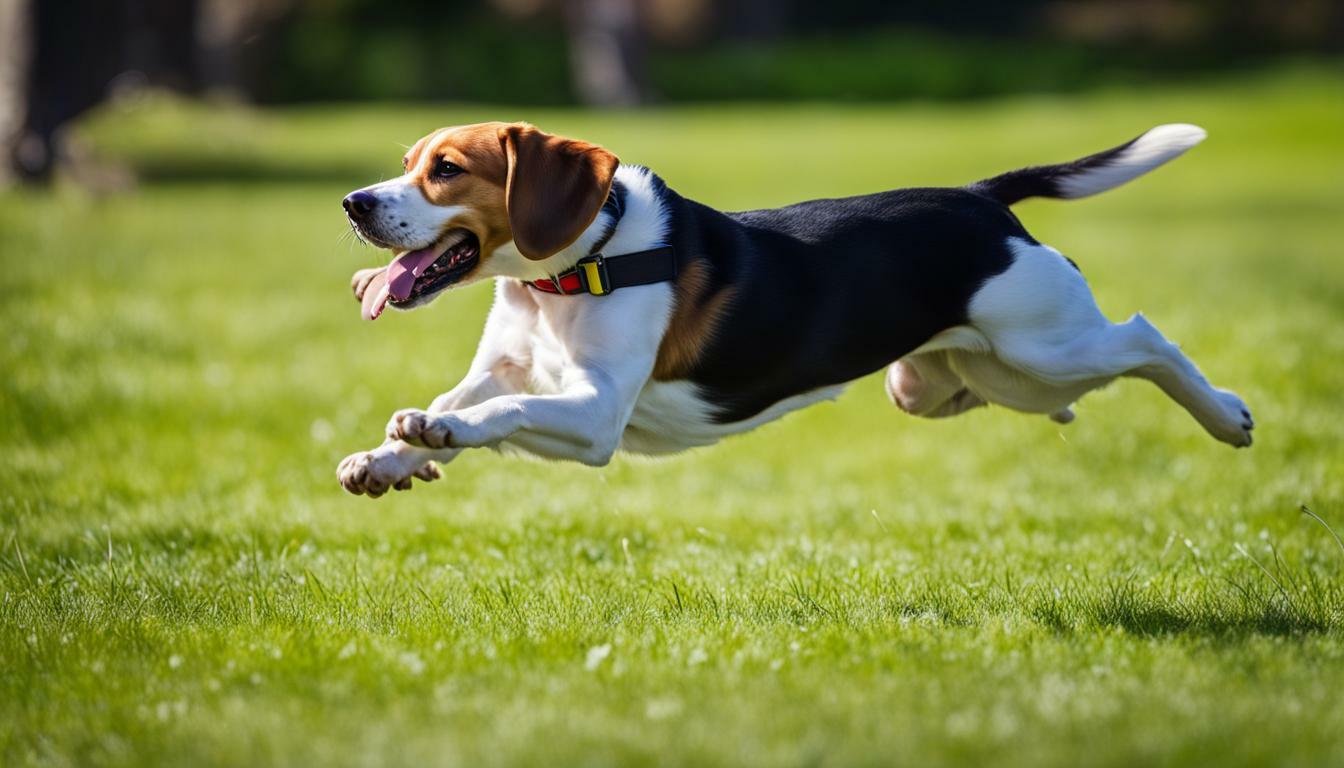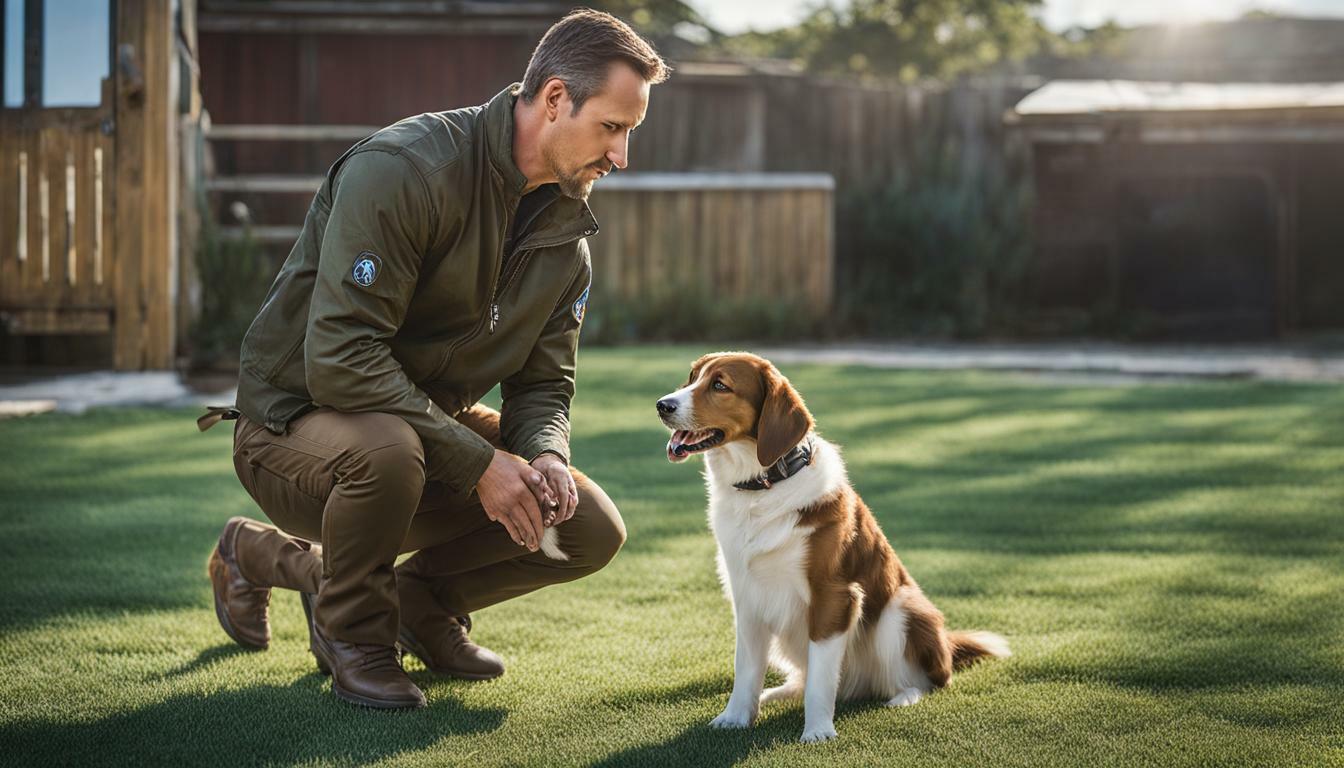If you’re considering adding a Beagle to your family, it’s important to understand the responsibilities that come with owning this lovable and energetic breed. From providing proper care and nutrition to training and socialization, being a Beagle owner requires dedication and commitment. In this comprehensive Beagle ownership guide, we’ll cover everything you need to know to ensure your Beagle remains happy and healthy throughout their life.
From choosing the right Beagle to training, nutrition, and health care, we’ve got you covered. This guide is designed to help you become a confident and responsible Beagle owner, providing expert tips and advice every step of the way. So, whether you’re a first-time Beagle owner or looking to brush up on your knowledge, this guide is the ultimate resource for all things Beagle.
Key Takeaways:
- A Beagle ownership guide is essential for a happy and healthy life with your furry friend.
- Proper care, nutrition, and training are key components of responsible Beagle ownership.
- Choosing the right Beagle for your lifestyle is important to ensure a successful and long-term relationship.
- Regular health care, socialization, and recognition of senior Beagle care needs are crucial for a lifetime of happiness with your Beagle.
- By following the advice and tips provided in this guide, you can become a confident and knowledgeable Beagle owner.
Choosing the Perfect Beagle: A Comprehensive Guide
Before bringing a Beagle into your home, it’s important to understand the different aspects of the Beagle breed. Beagles are a small to medium-sized breed known for their loyalty, friendly demeanor, and hunting abilities. Their short, smooth coat comes in a variety of colors, including black, white, tan, and tri-color.
When choosing a Beagle, there are several factors to consider. Beagles generally weigh between 20-30 pounds and stand 13-15 inches tall, making them suitable for both apartments and houses with yards. They have a curious and energetic nature, which requires daily exercise and stimulation to avoid destructive behavior.
It’s important to research reputable breeders or adoption centers when choosing a Beagle. A responsible breeder will prioritize the health and well-being of their dogs, and genetic testing for common health issues should be performed.
When considering a Beagle’s temperament, it’s essential to understand their prey drive. As hunting dogs, Beagles have a strong instinct to track scents and may chase after small animals. Proper training and socialization can help curb this behavior, but it’s important to be aware of it when choosing a Beagle.
Beagles require regular grooming, including weekly brushing to maintain their coat’s shine and regular nail trimming. Due to their floppy ears, they may also be prone to ear infections and require routine ear cleaning.
| Size | Weight | Height | Coat | Colors |
|---|---|---|---|---|
| Small to medium-sized | 20-30 pounds | 13-15 inches | Short and smooth | Black, white, tan, tri-color |
Overall, Beagles are an excellent choice for families or individuals looking for an active and loyal companion. By considering their unique traits and care requirements, you can make an informed decision and provide a loving home for your new Beagle.

A Beagle is an affectionate and loyal pet that requires proper care to stay healthy and happy. Here are some essential Beagle care tips to help you take care of your furry friend:
Grooming Your Beagle
Beagles have a short, dense coat that needs weekly grooming to remove dirt, dead hair, and tangles. Use a soft brush or grooming glove to reduce shedding and promote healthy skin.
Trim their nails every two to three weeks and clean their ears weekly to prevent infections. Brush their teeth regularly with a dog-specific toothbrush and toothpaste to prevent dental problems.
Feeding Your Beagle
A balanced diet is essential for your Beagle’s overall health. Feed them high-quality dog food in appropriate portions to maintain a healthy weight.
Beagles are prone to obesity, so avoid overfeeding and giving them table scraps. Provide fresh water at all times and avoid feeding them foods that are harmful to dogs, such as chocolate, grapes, and onions.
Exercise and Playtime
Beagles are energetic and require regular exercise to stay healthy. Take them for daily walks or runs and provide them with playtime to prevent boredom and destructive behavior.
Beagles are also social animals and require interaction with other dogs and people. Socialize them from a young age to build positive relationships and prevent aggression or anxiety issues.

Regular check-ups with a veterinarian are essential for the long-term health of your Beagle. Vaccinate them against common diseases and parasites, and maintain a schedule for preventive care such as flea and tick control and heartworm medication.
Beagles are prone to ear infections, obesity, and dental problems, so be aware of the signs and symptoms of these conditions. Seek prompt medical attention if you notice any unusual behavior or health issues.
By following these Beagle care tips, you can provide your furry friend with a happy and healthy life. With proper care, your Beagle will be a loyal and loving companion for many years to come.
Beagle Training 101: From Obedience to Tricks
Training your Beagle is an essential part of being a responsible owner. It not only strengthens your bond with your pet but also ensures their safety and improves their overall behavior. Here are some essential tips to help you train your Beagle.
Start with Basic Obedience Commands
Begin with teaching your Beagle basic obedience commands such as sit, stay, come, and down. Use positive reinforcement techniques such as treats and praise to encourage your pet to learn. Be consistent in your training, and keep sessions short to prevent your pet from getting bored or overwhelmed.
Use Positive Reinforcement Techniques
Positive reinforcement techniques such as treats, praise, and play are effective in teaching your Beagle new behaviors. Avoid using punishment or harsh training methods as they can be counterproductive and damage the trust and bond between you and your pet.
Address Behavioral Challenges
Beagles can exhibit challenging behaviors such as excessive barking, digging, and chewing. It’s essential to address these behaviors immediately to prevent them from becoming habits. Identify the root cause of the behavior, and use positive reinforcement techniques to redirect your pet’s attention to more acceptable activities.
Create a Positive Training Environment
Creating a positive training environment is vital to the success of your Beagle’s training. Choose a quiet and distraction-free area for training sessions, and use proper training tools such as clickers and leashes. Be patient with your Beagle, and remember that every pet learns at their own pace.
Teach Fun Tricks
Teaching your Beagle fun tricks is an excellent way to keep them mentally stimulated and strengthen your bond. Teach tricks such as roll-over, play dead, and shake using the same positive reinforcement techniques as basic obedience commands. Keep training sessions fun and engaging for your pet.

Training your Beagle takes time, patience, and commitment. By using positive reinforcement techniques, addressing behavioral challenges, and creating a positive training environment, you can establish a strong bond with your pet and ensure their safety and well-being. With consistent training and practice, your Beagle can become a well-behaved and obedient companion.
Understanding Beagle Behavior: Insights into Their Nature
Beagles are known for their lively, curious, and friendly personalities. However, as with any breed, there are certain behavioral traits that are specific to Beagles. Understanding these traits is essential to becoming a responsible and effective Beagle owner.
Hunting Instincts
Beagles are scent hounds, bred to hunt rabbits and other small game. As such, they have a strong hunting instinct that can be challenging to manage. They may become easily distracted by scents and wander off, so it’s crucial to keep your Beagle on a leash in public areas. Additionally, Beagles may display chasing behavior towards small animals, such as squirrels or cats, so it’s important to socialize them with other pets from a young age.
Sociability
Beagles are social pack animals and thrive in the company of their owners and other dogs. They may develop separation anxiety if left alone for extended periods, leading to destructive behavior. It’s essential to socialize Beagles from a young age to promote positive interactions with other people and animals. Enrolling in puppy socialization classes is an effective method of encouraging socialization and reducing anxiety.
Exercise Needs
Beagles have high exercise requirements and need plenty of physical activity every day to prevent boredom and destructive behavior. As an owner, it’s essential to provide sufficient exercise opportunities, such as walks, hikes, or playtime in a securely fenced area. Beagles also enjoy participating in activities such as agility and obedience classes, which can help develop their natural intelligence and problem-solving abilities.
Communication Style
Beagles communicate primarily through their body language, facial expressions, and vocalizations. They may bark, howl, or whine when they want to convey a message, such as wanting attention or feeling anxious. As an owner, it’s essential to understand your Beagle’s communication style and respond appropriately to their needs.
Addressing Behavioral Issues
Beagles may exhibit certain behavioral challenges, such as barking, digging, or chewing. These behaviors can often be addressed through proper training and socialization. Positive reinforcement techniques, such as rewarding good behavior, can be effective in reducing unwanted behaviors. If you’re struggling with behavioral issues, consider seeking advice from a professional dog trainer or behaviorist.

Understanding Beagle behavior is essential to providing proper care and establishing a strong bond with your furry friend. By addressing their specific needs and challenges, you can ensure a happy and healthy life for your Beagle.
Nutrition Essentials for Beagles: Feeding Your Furry Friend
Proper nutrition is crucial for the overall health and well-being of your Beagle. As a pet owner, it’s essential to understand your Beagle’s nutritional needs, including the right balance of proteins, carbohydrates, and fats.
When selecting the best food for your Beagle, choose high-quality dog food that meets their dietary requirements. Be sure to check the ingredients list and nutrition label to ensure it contains the necessary nutrients. Consult with your veterinarian to help you find the right food for your Beagle based on their age, weight, and overall health.
| Food Type | Benefits |
|---|---|
| Dry Food | Dry food is cost-effective and has a long shelf life. It also helps clean your Beagle’s teeth and gums. |
| Wet Food | Wet food is a good option for Beagles who have trouble chewing or have lower thirst drive. It is also more palatable for picky eaters. |
| Raw Food | Raw food is a good option for Beagles who have food allergies. It also promotes a healthy coat and skin. |
It’s important to monitor your Beagle’s portion sizes to avoid overfeeding and obesity. A general guideline is to feed your Beagle twice a day, once in the morning and once in the evening, using the recommended portion size based on your Beagle’s weight and nutritional needs.
While treats can be a fun addition to your Beagle’s diet, be mindful of their calorie intake and avoid giving them table scraps, which can be unhealthy and lead to digestive issues. Opt for healthy, low-calorie treats and limit their consumption to prevent weight gain.

By providing your Beagle with proper nutrition, you can help prevent common dietary issues such as obesity, digestive problems, and food allergies. Consult with your veterinarian regularly to ensure your Beagle is getting the nutrition they need to stay healthy and happy.
Beagle Health Care: Tips for a Happy and Healthy Beagle
Regular health care is essential to ensure your Beagle lives a long and happy life. Here are some essential tips to keep your furry friend in good health:
Dental Care
Dental problems are common in Beagles, so regular dental check-ups and cleaning are vital. Brush your Beagle’s teeth regularly with dog-specific toothpaste to prevent plaque buildup and gum disease. Avoid feeding your Beagle hard and sticky treats that can damage their teeth and cause tooth decay.
Ear Care
Beagle ears are long and floppy, which makes them prone to ear infections. Check your Beagle’s ears regularly for signs of redness, wax buildup, or foul odor. Use a cotton ball and dog-specific ear cleaning solution to clean your Beagle’s ears regularly. Avoid using cotton swabs, which can push debris further into the ear canal, causing infections.
Weight Management
Beagles are prone to obesity, which can lead to a range of health problems. Ensure your Beagle maintains a healthy weight by providing regular exercise and a balanced diet. Avoid feeding your Beagle table scraps and high-calorie treats, which can lead to unhealthy weight gain.
Regular Check-ups
Regular check-ups with a veterinarian are essential for your Beagle’s health and well-being. Schedule annual check-ups to monitor your Beagle’s physical and mental health, assess their risk for diseases, and get them vaccinated against common illnesses. Early detection and treatment can help prevent serious health issues and improve your Beagle’s quality of life.

Despite your best efforts, emergencies can still happen. It’s important to know the signs of a potential emergency, such as sudden lethargy, seizures, vomiting, or diarrhea. Have a plan in place and keep emergency contact information for your veterinarian or local animal hospital readily available.
By following these simple health care tips, you can ensure your Beagle remains healthy and happy throughout their life.
Socializing Your Beagle: Building Positive Relationships
Beagles are naturally sociable and affectionate dogs, but it’s important to introduce them to different animals and people from a young age to build positive relationships. Socialization is a crucial aspect of your Beagle’s development, and it will help them to become a well-behaved and balanced adult.
One of the first steps in socializing your Beagle is to introduce them to other dogs in a controlled environment. Start with calm and friendly dogs and gradually expose them to different temperaments and sizes. Be sure to supervise all interactions and intervene if things get too rough.
It’s also important to introduce your Beagle to a variety of people, including children, adults, and seniors. Encourage gentle interactions and reward positive behavior with treats and praise. This will help your Beagle to become more comfortable around unfamiliar people and to develop a friendly and outgoing personality.
Training is another crucial aspect of socialization. Basic obedience training, such as sit, stay, and come, will help your Beagle to understand your expectations and become a better-behaved companion. It will also help them to feel more secure in their surroundings, which can reduce anxiety and aggression.
If your Beagle shows signs of anxiety or aggression towards other dogs or people, it’s important to address the issue promptly. Consult with a professional trainer or behaviorist to determine the best approach for your Beagle’s specific needs.

Overall, socializing your Beagle requires patience, consistency, and positive reinforcement. With proper guidance and training, your Beagle can develop into a friendly and well-adjusted adult dog who loves to play and interact with different animals and people.
Beagle Lifespan and Longevity: Caring for Your Aging Beagle
As your Beagle grows older, they may require adjustments to their care routine to ensure they remain happy and healthy. Here are some tips to help you care for your aging Beagle:
Regular Exercise
Although your aging Beagle may not have the same energy levels as before, it is still important to keep them active. Regular exercise, such as short walks or playtime, will help keep their muscles and joints healthy. Be sure to consult with your vet to determine the right kind of exercise for your aging Beagle.
Diet Modifications
As Beagles age, their metabolism may slow down, which means they require fewer calories. Adjusting their food intake can prevent weight gain and associated health conditions. Consider switching to a senior dog food that is specially formulated for aging dogs.
Regular Vet Visits
Senior Beagles may develop health conditions that require medical attention. Regular vet visits help detect any health issues early, which can prevent health complications. Additionally, schedule regular dental check-ups as your aging Beagle may require dental care.
Comfortable Living Environment
It is important to provide a comfortable living environment for your aging Beagle. Consider providing soft bedding, such as an orthopedic dog bed, to help support their joints and prevent pressure sores. Also, ensure their food and water bowls are easily accessible to avoid unnecessary strain.
Love and Attention
Your aging Beagle may require more love and attention as they age. Spending quality time with them, providing plenty of snuggles and cuddles, can help them feel loved and secure. Additionally, consider providing mental stimulation, such as puzzle toys, to keep their minds active.
With these tips, you can help ensure your aging Beagle remains happy and healthy as they enter their golden years. Remember to consult with your vet if you have any concerns about your Beagle’s health or well-being.
FAQ
What is this Beagle ownership guide about?
This Beagle ownership guide provides expert tips and advice on how to care for your Beagle, covering topics such as choosing the right Beagle, training, nutrition, and health care.
How do I choose the perfect Beagle for me?
This comprehensive guide offers valuable insights into finding the perfect Beagle for your lifestyle, including information on temperament, size, exercise needs, and grooming requirements.
What are some important care tips for Beagles?
Discover essential care tips on grooming, feeding, exercise, and general care to keep your Beagle happy and healthy, including practices for maintaining their coat and addressing common health issues.
How can I train my Beagle?
Learn effective training techniques, address common behavioral challenges, and create a positive training environment for your Beagle, covering everything from basic obedience commands to fun tricks.
What should I know about Beagle behavior?
Gain insights into the typical behaviors of Beagles, including their hunting instincts, sociability, exercise needs, communication style, separation anxiety, and ways to address behavioral issues.
What should I feed my Beagle?
Discover the essential nutritional needs of Beagles, including the right balance of proteins, carbohydrates, and fats. Learn how to choose the best food, understand portion sizes, and address common dietary issues.
How can I ensure my Beagle stays healthy?
Learn about common health conditions that affect Beagles, preventive measures, regular check-ups, and how to recognize signs of illness to ensure your Beagle remains happy and healthy.
How can I socialize my Beagle?
Get effective strategies to socialize your Beagle from a young age, including introductions, proper socialization techniques, and addressing specific challenges that may arise.
What care adjustments are needed for aging Beagles?
Discover the challenges and adjustments required to ensure a comfortable and happy life for your aging Beagle, including senior Beagle health care, exercise modifications, and providing love and support in their golden years.

Marissa Delotta, 36, from Dayton, Ohio, is the creative force behind Roverboard.com, a beloved online destination for dog lovers. As a dedicated mom and canine enthusiast, Marissa combines her family experiences with her love for dogs to offer a platform where dog owners can exchange tips, heartwarming stories, and advice. Her website has become a vibrant community for sharing the joys of dog parenting. In her free time, Marissa enjoys exploring dog parks with her family and volunteering at local animal shelters.





